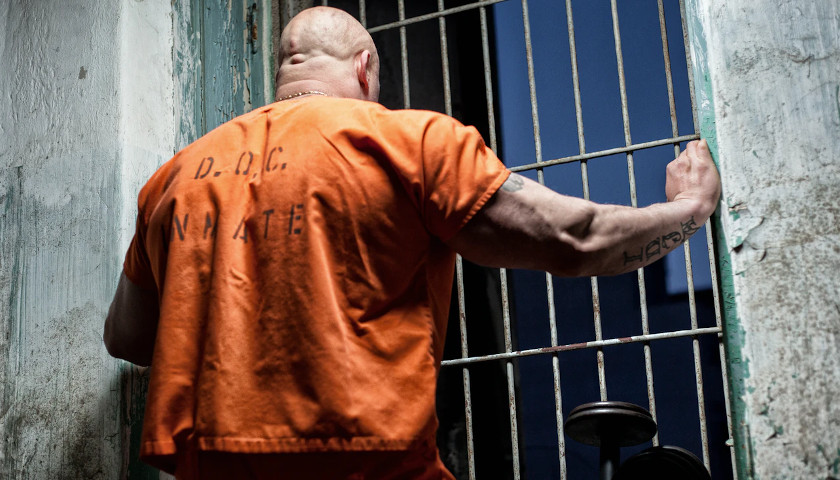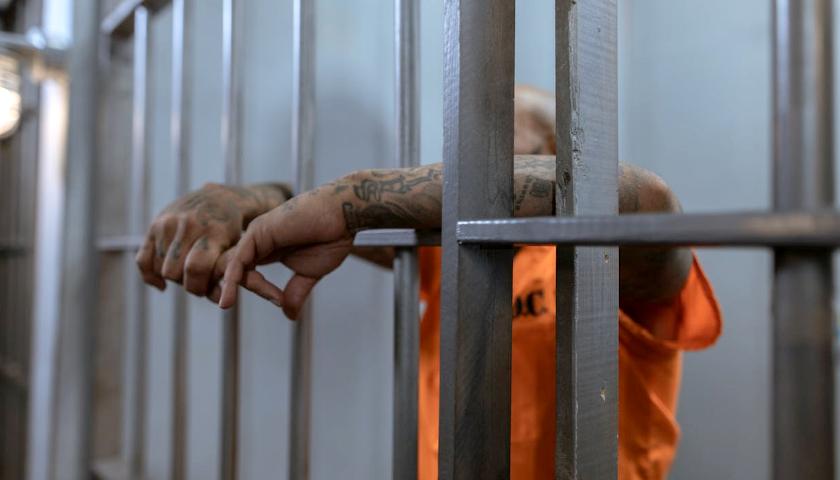The House Committee on Courts of Justice advanced a bill Wednesday that would allow for the early release of violent offenders by implementing a new earned sentence credit program.
The bill bars prisoners convicted of capital murder and most acts of violence involving minors from earning credits, but, conversely, includes first-time offenders convicted of first-degree murder, kidnapping, carjacking, rape and child pornography, among others.
“These are offenders that are, we think, of very significant risk of reoffending and if they re-offend in a violent way people can get hurt or killed so this is obviously a bill that we do not support,” Said Del. Rob Bell (R-Albemarle) said in an interview with The Virginia Star.
Bell, a member of the Courts of Justice Committee, is a firm believer in the current truth in sentencing system, which requires that inmates serve 85 percent of their sentence.
House Minority Leader Todd Gilbert issued a statement expressing strong Republican disapproval for the bill and calling out House Democrats for this decision.
“Virginia children can’t attend school in person, businesses and jobs are being permanently lost, violent riots continue, and House Democrats have chosen to focus their energy on helping killers, rapists, and child sexual predators get out of jail early,” Gilbert said in a statement. “Republicans believe that killers, rapists, and child molesters should serve their full sentences. The vote today was an insult to crime victims and their families.”
Del. Don Scott (D-Portsmouth), the sponsor of the bill, said in the committee meeting that he was open to listening to the concerns of different members and willing to add more amendments to the bill.
Specifically, Scott said that he would consider barring offenses like forcible rape, forcible saudomy and aggrivated sexual battery, among others, after Del. Karrie Delaney (D-Fairfax County), who is a crisis counselor and victims advocate, brought up those charges during the meeting.
When contacted by The Star, Scott said that he was begrudgingly making even more changes to the legislation so that it can pass the appropriations committee and then a vote on the House floor, meaning the bill may look vastly different by Friday.
The current iteration of the bill creates a four-leveled sentencing credit system with each level correlating to a certain amount of days being deducted from a prisoner’s sentence for every 30 days served.
Level 1: 13 days are deducted.
Level 2: Seven and a half days are deducted.
Level 3: Three and a half days are deducted.
Level 4: No days are deducted. Prisoners are only classified level 4 if they willfully fail to participate or cooperate.
According to the credit program, earning level 1 credits would allow a prisoner serving a five-year sentence to serve 65 percent of that or three years and two and a half months, a ten-year sentence to serve 58 percent or five years and nine months and a 20-year sentence to serve 54 percent or ten years and nine months.
The program is to be run by staff in the correctional facilities. Prisoners are assigned goals based on their profile and then must complete a wide variety of things including, counseling, substance abuse treatment, vocational and educational training and job assignments, Scott said.
To qualify for the highest level of the program, level 1, prisoners must be infraction free, Scott said.
After public comment and members of the committee offered their thoughts, the bill was advanced by a vote of 11-Y 9-N. Delaney joined Republicans in voting against the bill, while Del. Carroll Foy (D-Prince William County) did not vote at all.
The House Committee on Appropriations will consider the legislation during its Friday meeting.
– – –
Jacob Taylor is a reporter at The Virginia Star and the Star News Digital Network. Follow Jacob on Twitter. Email tips to [email protected].






Justice Reform is code for let the criminals off the hook and law abiding citizens beware. I suppose it makes the legislators feel so good about their compassion for the criminals while having none for the victims and future victims.